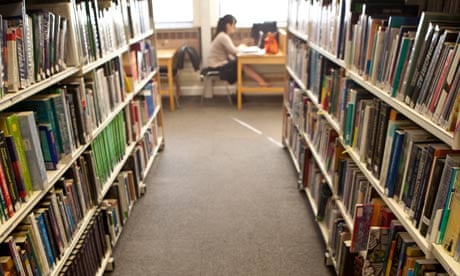It goes without saying that students use Wikipedia extensively, probably more than any other social group. Although the website's founder Jimmy Wales once warned readers not to use the website for academic purposes, American research shows that the majority of students browse its pages when researching essays.
Most universities and academics distrust the service, my department's "Essential Guide for Students" leaves no room for ambiguity, warning us: "Never cite Wikipedia." But why is the academic world so hostile to this vast information resource? And why do students find it so hard to stay away?
The greatest strength of Wikipedia is that its contributors can chose which area they want to write about, which, in theory, means they only produce content where they are most qualified to do so. Harvard University's Professor Yochai Benkler says this explains why Wikipedia has succeeded where other more traditional business models like Microsoft Encarta and Encyclopaedia Britannica have failed.
Lancaster Law School academic Dr Richard Austen-Baker illustrates this theory. He registered with Wikipedia to clean up an article on his specialist subject – relational contract theory. The original entry was a bit "raggedy around the edges", he says. But of course, the article may well have changed since Dr Austen-Baker made his contributions – and therein lies the danger of open source content.
Academics discredit the website for several reasons: articles can be written by anyone, not necessarily a world expert; editing and regulation are imperfect and a reliance on Wikipedia can discourage students from engaging with genuine academic writing. Vandalism is also common. There are numerous examples of politicians and public figures amending articles about themselves to erase unfavourable material. Wikipedia's own incomplete list of hoaxes makes interesting and comical reading (I particularly appreciated the fictitious "Township of Asstree, Tennessee").
Despite Wikipedia's drawbacks, students will continue to take advantage of the resource – and the default response of academics to simply advise against using the site is unlikely to have much effect. Lancaster lecturer Dr Catherine Easton says students must develop an ability to analyse the nature of the source material within Wikipedia, adding that the educator should ensure there is "a strong, continuing focus on the need to support academic work with references to acceptable scholarly sources".
Both of the academics questioned for this article agree that it is easy to spot essays that are over-reliant on Wikipedia, and that direct citation of the site was always unacceptable. While following the footnotes in Wikipedia pages is a way to access stronger content, they say a critical mind should be applied to each source individually. Dr Austen-Baker says that some articles on Wikipedia can be "exotically inaccurate", and that undergraduates must familiarise themselves with the equivalent, and often ignored, written encyclopaedias. He adds that over-reliance on free electronic materials makes it increasingly difficult to publish traditional books at all.
Dr Easton believes the "consensus-based" approach employed by Wikipedia might actually make the website's most popular articles less subjective than the introductions found elsewhere. But, she adds, like any information source, it can only be put to good use when it's in the hands of a discerning and critical student.

Comments (…)
Sign in or create your Guardian account to join the discussion